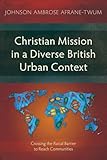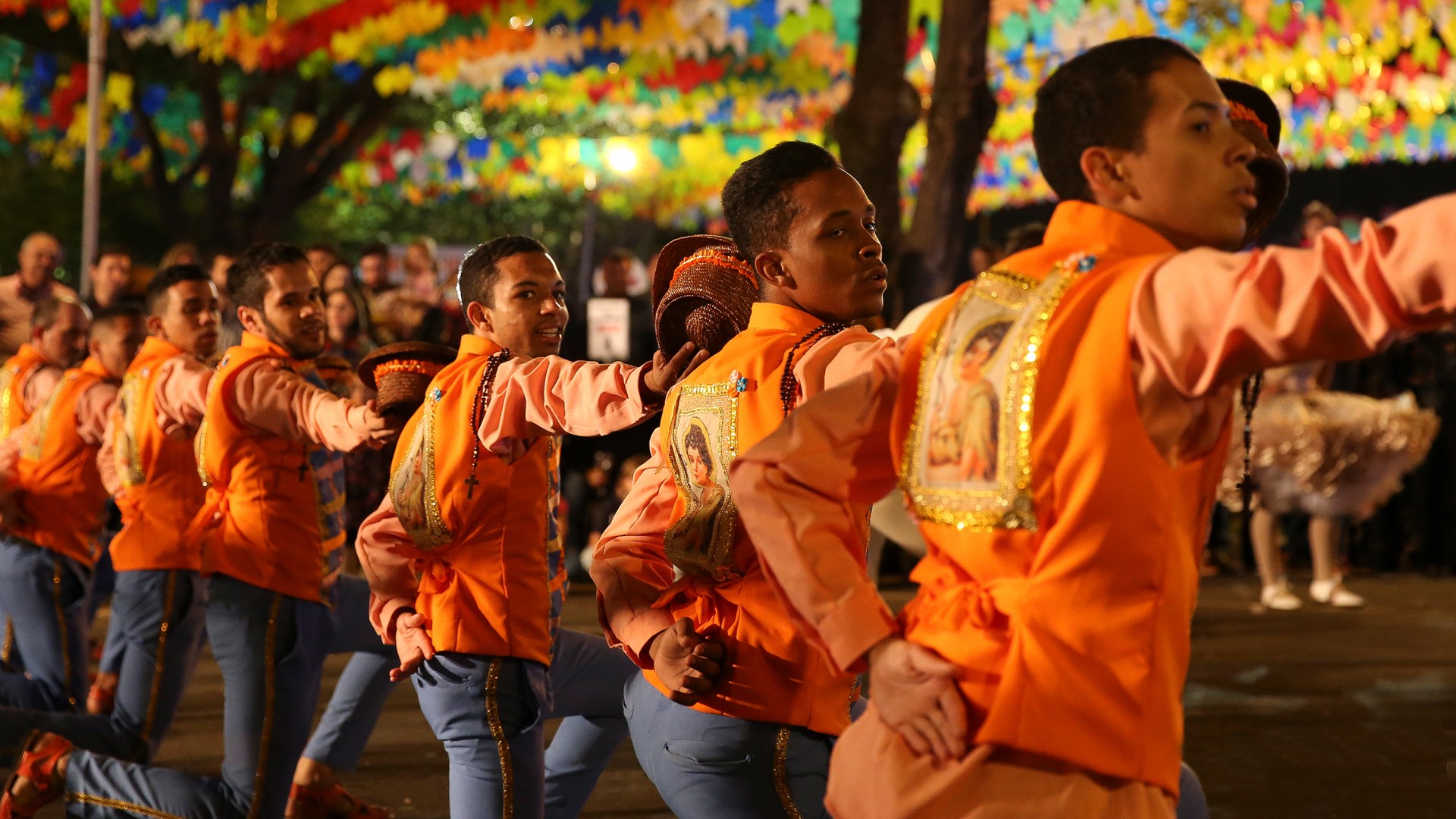I don’t remember when I realized I didn’t have a community.
Perhaps it was one Sunday after our church service when, holding my nine-month-old son, I stepped from the nursing room into the sanctuary and felt, with horrible déjà vu, exactly the way I had felt as a 14-year-old immigrant entering an American school for the first time. I saw a sea of faces I didn’t recognize—people divided into their own friend groups, smiling, chatting, nodding. Everybody seemed to belong somewhere, and I was like a newcomer to a church I had been attending for five years.
Or perhaps it was the Saturday when my mother was getting scanned for pancreatic cancer in South Korea and my husband, David, was out of town. I was solo parenting at home, trying not to cry in front of my son, Tov. I longed for a friend to appear at my door and sit with me, pray out loud, or play with Tov while I washed tears off my face.
I didn’t think much about community until I really needed one and it wasn’t there.
Christians are familiar with Genesis 2:18: “It is not good for the man to be alone.” This verse is most often applied to marriage, but it is an inescapable reality that the Creator, who himself dwells in community as three persons in one, created all humankind to be with and for other people. It is not good to be alone because we were not made to be alone. We burst from our mothers’ wombs screaming for touch.
But as we grow older and more self-sufficient, distracted by life’s burdens, we learn to live independently, like accommodating a broken ankle. And so onward we limp, relationally crippled, until we face a steep hill and realize we need help.
The modern forces of loneliness, writes Derek Thompson in The Atlantic, have created a social ecosphere in which we are “both pushed and pulled toward a level of aloneness for which we are dysevolved and emotionally unprepared.” Americans are spending fewer hours socializing face-to-face than ever before.
The rise in solitude seems to correlate with worsening health outcomes: Teen hopelessness, depression, and suicidal thoughts have been increasing almost every year in the past decade. Life expectancy in America, after rising for decades, has fallen to its lowest level since 1996, in part due to drug overdoses and suicides.
Last year, US surgeon general Vivek Murthy said that half of American adults reported experiencing considerable loneliness even before the pandemic, an “epidemic of loneliness and isolation” that could be as deadly as smoking daily.
We know the solution to the isolation crisis: We need each other. We also know we need the social infrastructure to establish and maintain regular rhythms of face-to-face human contact. That infrastructure has been diminishing. Washington Post columnist Perry Bacon Jr. wrote about feeling a “church-sized hole” after he left the church and joined the nones. “Our society needs places that integrate people across class and racial lines,” he wrote.
Funny. I belong to a church. And I too feel like I have a church-sized hole.
Last July, I posted on X and Threads, looking for examples of “beautiful, lasting, deep Christian friendship.”
I should have written “community” instead of “friendship.” Several people responded, describing friendships they had maintained for years. But those friendships were mostly long-distance, kept alive through FaceTime and voice messages.
I have friends. I’ve been a bridesmaid and maid of honor in many weddings. But those are friendships from my teen years and 20s. We are scattered now, across states, oceans, and life stages. They are my friends, but they are not my community. Exchanging funny Instagram reels or texting throughout the week provides me with sporadic sparks of connection.
But authors such as psychologist Susan Pinker have documented how digital interactions cannot replace physical presence—the beautiful ministry of a hug, of a hand held, of smelling the same warm coffee, of simply sitting quietly side by side. It’s the continuum of community—people doing life together, solitude interrupting ongoing interactions rather than brief interactions interrupting solitude—that sets it apart from friendship.
But we are all so darn busy. It takes weeks to schedule a hangout. And if you’ve got kids, plans often get canceled last minute, like that third time my friend rescheduled our date because her toddler fell sick again. That was almost a year ago, and we still haven’t made it happen. We have a good excuse: Though we both live in Los Angeles, we are separated by an hour of traffic. But I have no good explanation for why it takes months to schedule a dinner with neighbors who live on my block. Can we possibly be that busy?
It wasn’t always like this. When I was a child in South Korea, my family was part of a small, tight-knit Presbyterian church. We lived in an alley where neighbors freely walked in and out of each other’s houses, sharing home-pickled kimchi.
When we moved to Singapore after my father became a missionary, we lived in a Bible college dorm, sharing a kitchen and living room with missionaries from Myanmar and Thailand.
When we immigrated to the United States, we immediately plugged in to the Chinese church my father planted, spending at least 15 hours a week with our church family. During college, I was part of a small church in LA’s Koreatown, spending weekends hanging out at sleepovers and all-day barbeques.
But I was young then, in a different culture and place. I didn’t seek community; it was just there. Now I’m in my late 30s, married, a mother, living in one of the most transient cities in the world. What does community look like in this season?
One reply to my social media net-casting did hook my interest. Brian Daskam from Denton, Texas, sent me an email saying his community “often resembles those TV shows we grew up with: Saved by the Bell, Dawson’s Creek, Friends. Every event we attend is suspiciously occupied by the same cast of characters, the same handful of friends.”
For decades, dating back to their post-college, early married years, the Daskams and their friends took turns hosting dinner book clubs every Sunday evening, during which they discussed Rousseau, Locke, Nietzsche. They continued meeting after babies entered the picture. The room was gurgly and crowded with bouncers and changing pads. They rocked each other’s newborns and discussed things that mattered, whether it was the teleological suspension of the ethical or sleep training.
That’s the community Brian and his wife, Keri, cultivated over 20 years. That’s the village in which they raised their children, who are now best friends with their best friends’ children.
Today, Brian is 45; Keri is 44. With three kids ages 16, 14, and 8, they’re further ahead of me in life. But they seemed to model exactly what I wanted in a community.

When I visited the Daskams in September 2023, the first thing I noticed about Denton was that people drove leisurely, not frantically and ragey like in LA. Denton is a flat city of about 148,000 people, just north of the Dallas-Fort Worth metropolitan area. It has a college-town vibe. Comparing it to Los Angeles County, with its 10 million people and 88 cities, I started doubting: What could I learn from the Daskams that I could apply back home?
On a Friday evening, I met Brian at the Denton Natatorium, where his oldest, Cate, was competing in a water polo match. His whole family was there, along with several of his friends whose daughters are also on the team.
I squeezed onto a bench between Keri and her best friend, Jeannie Naylor. They met as roommates at the University of North Texas in Denton and have been inseparable ever since.
“I apologize in advance, but I’m going to be really loud,” Jeannie said. She whooped and clapped. To my right, Keri cheered too but was more restrained. “Keri’s too nice,” Jeannie teased. They were so different: Jeannie exuberant and gregarious, Keri reserved and introverted. They can’t imagine life without one another.
A few years ago, the two families were briefly separated by about 2,000 miles. In 2018, the Daskams moved to Olympia, Washington, after Brian took a new job as a communications manager. Brian and Keri were sad about leaving their community but confident about building a new one.
“We had already learned how to create community,” Brian recalled thinking. “We would replicate the model in Washington State. We would be missionaries of community!”
Living in the Pacific Northwest was a dream come true for Brian, who in high school had decorated his locker with posters of mountains and lakes. They bought a log cabin on two acres of wilderness endowed with wild berries, deer, eagles, and the occasional mountain lion. On the weekends, they hiked evergreen forests, harvested oysters at the beach, and kayaked among seals in Puget Sound.
Only one thing was missing: community.
The Daskams tried hosting a dinner book club. They cooked a feast and waited. No one came. “It felt like we were being stood up before a dance,” Keri recalled. They kept inviting people over. Some declined. Others canceled last-minute or showed up once and then disappeared. Some weeks, the Daskams’ only social interaction was smiling at people at church.
It turned out that building a community was challenging as late-30s transplants in a different state. “We were naive,” Keri said. “We were trying with all our minds, and it was not coming together. I’m still not sure why we didn’t just get that magic chemistry that we experience here [in Denton].”
And then COVID-19 hit. Finally, Keri asked Brian, “Can we move back? Can you take me out of here?”
It took significant sacrifices to move back. Brian quit his job and sent out a dozen resumes a day for positions that would allow him to work in Denton. They sold their beautiful cabin and hunted for a new house.
In June 2022, four years after leaving, they packed everything back into boxes and drove home. When they returned, it was like their friends had been guarding seats for them. Like they had never left.
And so there we were in the natatorium, just another evening of hanging out. After the match, I chatted with Jeannie while Keri passed out homemade M&M cookies. The sun had set, but outside it was still humid after a blistering, 96-degree autumn afternoon. I could see why Brian had fled to the mountains.
“I don’t know why I live here,” Jeannie complained. But she couldn’t leave because, like the Daskams, she was stuck in community. “What we need,” she exclaimed, “is we need everyone to move together.”
But I wondered if this group would be able to sustain the depth and frequency of interaction in another city. Denton isn’t just a backdrop; it’s part of their community. It matters that they lived their formative years here, transitioning together from college students to newlyweds to first-time parents. It matters that they still live within a nine-minute drive of each other and that their children attend the same schools. It matters that they frequently bump into the same faces at coffee shops and grocery stores and that they groan and suffer the same seventh-circle-of-hell summers together.
I have lived in 12 different homes in three different countries, and I still fantasize about moving. Not once did I factor in community. I assumed I would find my people wherever I went—not that I would go to where my people were.
On Saturday evening, I arrived at the house of Kevin and Emily Roden, longtime friends of the Daskams. Brian had encouraged people in his circles to read Shakespeare’s Midsummer Night’s Dream and invited Baylor University professor Matthew Lee Anderson to lead a discussion on the play and on how people transfigure their longings and desires.
There were sparkling waters, jugs of old-fashioned, mozzarella balls, and pretzels. I waved hello to the Daskams’ pastor, a widower with a kind face, and shook hands with several guests who were regulars at their Sunday dinners. Then we all sat down—more than 30 of us in total—to debate and laugh about what it means to be and live as human beings.
“It’s weird, what you’re doing,” the professor told the group in amusement. “Spending Saturday night thinking about these things.”
But I sensed this evening wasn’t merely a one-off event; it was the outgrowth of an institution that the Daskams had refined over two decades. Their Sunday evening dinners—kicking off the week by breaking bread with community—were a powerful liturgy. It forged identities not as individuals or nuclear families but as parts of a collective of believers who think deeply and discuss intentionally. Their conversations shaped their thoughts, values, and interests.
Later, I talked to the host, Emily Roden, a petite woman with chin-length auburn curls. The Rodens and the Daskams had met in college, once living in the same Victorian-style townhouse complex. Now their oldest daughter, Rosie, is best friends with Cate. Before the Daskams moved to Washington, they spent their last two nights in Denton at the Rodens’ home. It felt like a big slumber party.
“And they just left,” Emily recalled. “Except this time, they weren’t going two minutes away but several states away.” She shook her head. “Oh, I could almost cry just thinking about it again.” She remembers feeling lost. “A huge reason why we’re even in Denton is gone,” she told her husband then.
The Daskams’ absence left a hole in their community. It changed the dynamic. Who could replace Brian’s intellectual curiosity and nerdiness or Keri’s sweet wisdom and baking? “These kinds of friendships come only once in a lifetime,” Emily told me.
And for some people, never.
I felt a pang. If David and I were to move, would anyone say that our departure left a gash in their world?
I also felt weirdly embarrassed. When I told people why I was visiting Denton, they shot me looks of sympathy. “Oh, I’m so sorry,” they said.
I hadn’t felt embarrassed until that point. Didn’t everyone struggle with finding community? Not them, it seemed. They joked about wanting to escape Denton, but with a contented resignation. Ah well, what can we do? This is home.
“So what you’re telling me,” I later asked Brian, “is I need to return to college, find my besties there, buy houses in the same neighborhood, have babies at the same time, and spend 20 years together in order to have the community you have.”
Brian laughed. Much of what he has is the grace of God, he admitted. “We recognize it’s unfair, that some of these things, not everyone has the ability to do,” he said.
Perhaps not. The Daskams had tried in Washington, and they had come back. But what I saw in Denton were the fruits of 20 years of structured gatherings pumped with many unstructured hangouts. The group met frequently, consistently, intentionally, randomly, spontaneously. Its social muscles were limber and strong after repeated strengthening and stretching.
I flew back to LA with a hole growing in my heart. It wasn’t a terrible feeling; it was that I’d seen with my own eyes what I longed to have for me and my family. I also felt comforted by the Daskams’ struggles in Washington. I wasn’t alone; building community is hard.
But how did it get this hard?
David and I got married on April 10, 2020, at the dawn of COVID-19 social distancing mandates. A month earlier, the world had shut down. Schools and churches closed. Gyms and movie theaters shuttered. Even playgrounds and beaches were taped off.
We were married in David’s backyard in front of God, our pastor, and a camera through which our friends and family witnessed our vows. Our “reception” was on Zoom, and David and I dined on Uber Eats sushi. On the screen of our iMac, my mother-in-law looked miserable; my father-in-law cried, but not from joy.
I didn’t mind too much. We saved thousands of dollars. Nobody could tell my makeup was hideous or that I wore sneakers under my dress. Besides, wasn’t a wedding about the love and commitment between husband and wife? So what if, when the Zoom window closed, we were suddenly alone in our house for the rest of the day, the rest of the week, and months after? A marriage is between two, no?
And that’s how our new life began. Our church did not meet in person for more than a year. I got used to livestreaming the sermon while frothing milk for my coffee. We stopped attending biweekly neighborhood “dinners” on Zoom because those virtual hangouts felt pointless and awkward.
David complained about feeling isolated; I felt liberated—free from anyone’s petty drama or birthday parties or baby showers. My plans revolved around my interests and convenience.
Slowly, gradually, the outside world returned. Our church met physically for services again. We met with friends at restaurants. But by then, I had gotten comfortable living a self-contained, self-gazing life. Navigating 58 minutes of freeways to meet a friend suddenly felt draining and unnecessary. Was it really worth all that effort when we could just text or call?
Then on Saturday morning, September 18, 2021, my husband received a call from his dad. I was still in bed, but I could hear my father-in-law’s loud, ragged sobs through the phone.
While my in-laws were on their usual daily walk, a neighbor in a Chevrolet Avalanche had sped through a busy intersection and hit my mother-in-law.
By the time David and I were in the air, flying to Bismarck, North Dakota, the doctors had pronounced her dead. My father-in-law greeted us at David’s childhood home with sunken eyes and swollen cheeks, looking frail and broken in his dark, four-bedroom house.
We stayed three weeks in Bismarck. Relatives converged from across the country. Friends and neighbors rang the doorbell and dropped off cookie platters, knoephla soup, and tater tot casseroles. Our cellphones vibrated all day with text messages from friends and coworkers: “Praying for you.” “Whatever you need.” “There are no words.”
When we returned home, my husband was not the same man. He had needs he couldn’t identify. I didn’t know how to be the wife he needed, and his friends didn’t know how to be the friends he needed.
Our church asked if we wanted a meal train. We said no. We lived a ways from most of the congregation, and besides, I hate casseroles.
I realize now that turning down the offer was a grave mistake. People wanted a reason to come knock on our door, to invite themselves over, and I had closed the gate on them. So over time, people forgot. They had their own problems. Some texted to ask how David was doing, but they didn’t know how to respond when he told them he was still grieving.
Five months after the tragedy, I found out I was pregnant—six months pregnant.
When I gave birth to our son, we named him Tov to remind ourselves that God is tov—“good” in Hebrew. God created the world and called it tov. He also said: Lo-tov heyoth ha’adam levaddo. “It is not good for a man to be alone.”
It was through Tov that I realized I was alone. When he was born, I again declined a meal-train offer from our church; I just wanted to be left alone. Postpartum and motherhood blew my world apart. I lost my freedom of body, time, and attention. I was grossed out by how I leaked everywhere, deflated yet swollen. I had, seemingly overnight, become responsible for a helpless human being. I didn’t want to see anyone or be seen.
Nine months passed until one Sunday at church when I exited the nursing room and, lifting my head from the fog of motherhood, saw only unfamiliar faces.
In those nine months, our congregation of about 100 had changed (LA being a transient city). I hadn’t noticed. But my oblivion wasn’t solely due to motherhood. It was formed by months of seeking only what felt convenient and comfortable.
There were other obstacles to community, too. Having a baby meant less flexibility. We couldn’t attend neighborhood dinners or prayer nights, which conflicted with bedtime. We invested in one family, hoping our sons would grow up to become best friends, and then the family moved to Fresno. I was part of a discipleship group, but because of conflicting schedules, we met maybe once every six weeks. “We should meet up sometime” became such a common lie that we said it as glibly as a passing greeting.
Yes, we were busy. But to be “too busy” for community is simply to prioritize things other than community. What would our life look like now had we made different choices, like accepting those meal trains?
After visiting Denton, I made several changes.
First, I called some close friends and penciled in monthly dates to hang out. If we didn’t have some sort of structured schedule, I knew we’d only meet a couple of times a year.
Second, David and I made a list of our family values. At the top: Sunday is sacred. It will no longer be an hour of church, then errands, then chilling in front of the TV. Sunday will be reserved for our church family, even if it means ruling out certain extracurricular activities for Tov.
Third, we decided to find a church closer to us. We couldn’t see ourselves forming consistent community at a faraway church with rhythms of fellowship our family couldn’t partake in. When we’re out of sight, we’re out of mind.
At our new, nearby church, we found a small group that met on Sunday afternoons. The first time we visited, older children played outside while Tov stayed with us. He bounced around like a bunny on an energy drink, sprinkling crumbs everywhere. We felt terrible, but nobody seemed to mind. When Tov started fussing, a college student got on her knees and enthralled him with magic tricks.
That first meeting felt awkward. It’s always awkward breaking into a group that has already formed its own culture and dynamics. Everyone was friendly, but we didn’t immediately jibe with anyone. We were just…so different.
The next small group gathering, we met at someone else’s house. The first thing I saw was a big campaign sign in the front yard endorsing a candidate I would never support. I groaned. I knew that a person’s political position shouldn’t matter within the body of Christ, but that sign left an impression.
What did I expect? That we’d just stumble upon “our people” and start running to Costco together and pouring out our hearts around a firepit? The first community Jesus built was his 12 disciples—men of clashing political stripes, personalities, and social backgrounds whose bickering is well documented in the Gospels (Luke 9:46). What made me think my community should share my interests, humor, and politics?
I was still struggling with these thoughts when I picked up a book called When the Church Was a Family: Recapturing Jesus’ Vision for Authentic Christian Community by Joseph H. Hellerman. I had read multiple books on friendship and community, but this was the first one I’d found that focused on the church.
“As church-going Americans, we have been socialized to believe that our individual fulfillment and our personal relationship with God are more important than any connection we might have with our fellow human beings, whether in the home or in the church,” Hellerman wrote. “We have, in a most subtle and insidious way, been conformed to this world.”
Modern Christians often put family needs above community ones, even seeing that as biblical. But Hellerman argues that’s not what Scripture and the early church teach.
“The New Testament picture of the church as a family flies in the face of our individualistic cultural orientation,” he writes. God’s vision of the church as our first family “offers a powerful antidote” to the social ills of today.
I was still reading the book’s introduction when I realized that Joseph Hellerman was the same “Pastor Joe” who preaches at the church David and I had been attending for several weeks.
I emailed Hellerman. It turns out he lives five minutes away from me. We met up at his favorite local coffee shop. He had grown up in the neighborhood and raised two daughters in his childhood two-bedroom home. As we baked outside in the California sun, locals stopped to say hi.
Hellerman, at 71, still gives off major beach vibes. He’s been in ministry for more than four decades, using his church as a sort of “laboratory,” as he calls it, to test his convictions on community. He preaches regularly against Western individualism, trying to model community in his own life. “It hasn’t been easy,” he told me.
Hellerman is proud of his church. But of roughly 400 members, he estimates that maybe 100 truly experience the church as family. “We’ve worked, worked, worked at it, and that’s the best we can do.”
The pandemic was the most divisive time in his ministry experience. He was aghast and disappointed to see church members squabble and attack each other on social media about vaccines and masks. Some left over their differences.
Orthodoxy wasn’t the problem, Hellerman said: “I’ve seen too much good theology and bad relationships go hand in hand over the years.” We know cognitively what we need to do, what we long for, he explained. But we don’t know how to put that into practice, or we are unwilling to do so. Too many forces work against us:
“When I look at my own life, my own stubbornness when it comes to community, my wife and I don’t get the community thing like we should. We are drawn to it yet scared to death by it. It’s our house. Our money. Our life.”
Somehow, it didn’t discourage me that Hellerman, who had written a whole book about this topic with such conviction and authority, struggled to live it out. Instead, I felt encouraged—100 out of his 400 church members were managing to live out community. Here was a pastor who empathized with those who fell short, because he swims against the same currents.
The week we talked, Hellerman was working on a sermon about the role of the Holy Spirit in community. He can preach all he wants, he said, but ultimately, “If this is the truth, then as it’s being shared, the Holy Spirit in the people is going to affirm it.”
I suppose that’s what’s been going on inside me: The Spirit has been affirming what I’ve known and desired all along. “David and I don’t want to move churches anymore,” I told Hellerman. “We want to plant roots here. I want my son to grow up in a church where he has surrogate aunts and uncles. I want him to not just be raised by me and David, but by the church community. I want him to love the church as family.”
It was the first time I had expressed this out loud, but it’s a prayer that’s been gradually maturing in my heart. It started with a longing for community that first focused on my and my family’s needs.
Over time, the Holy Spirit has been illuminating and correcting me, revealing my selfishness and stubbornness, deepening and expanding my prayers toward something that’s closer to God’s heart, something that hopefully reflects the all-night prayers I imagine Jesus prayed in Luke 6:12 before he chose the disciples who would build his church.
And if this is what God wants for us, our path is simple: Follow and receive. Follow, even if it means our plans get canceled, our routines get messed up, and we sacrifice time and resources. Receive, because community is a gift from God, even if the people surrounding me don’t conform to my preferences. Even if they hurt or annoy or inconvenience me.
It sounds so simple. Yet it is so, so hard. At times I think, Why, this is nothing. Other times, I feel defeated: Can we really do this?
A few days before Christmas last year, I found out we were having another baby. Our life is only going to get more chaotic, more busy. And depending on what we choose, we might become even more isolated.
But we have to do this. Round two, here we go. And this time, I’ll accept the casseroles, thank you.
Sophia Lee is global staff writer at CT.


































